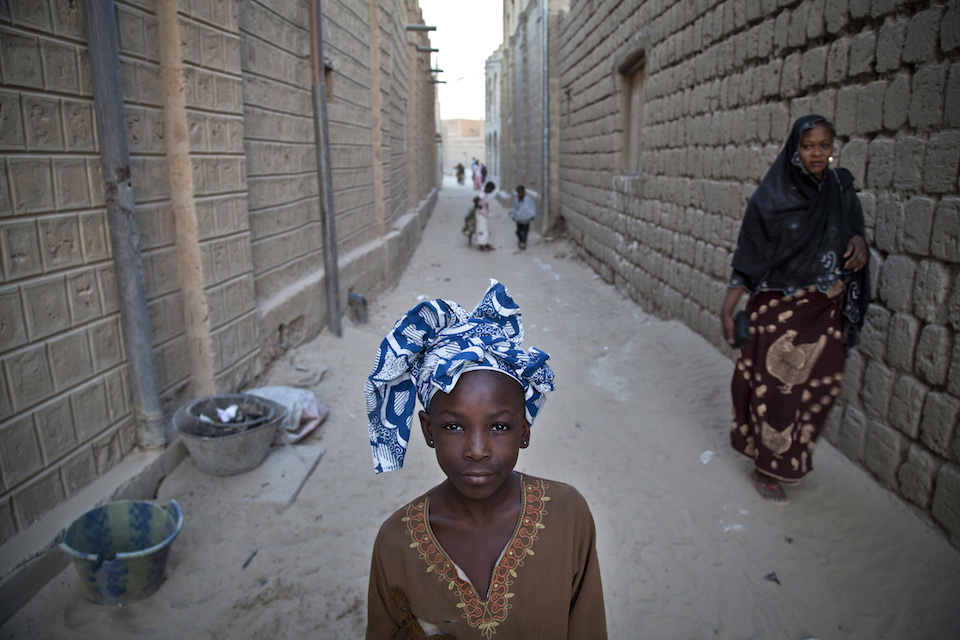"The human rights situation in Mali needs close attention."
Statement by Ambassador Peter Wilson, UK Deputy Permanent Representative to the United Nations, on Mali.

Thank you Madam President,
It’s good to see His Excellency Foreign Minister Diop of Mali, join us in New York once more. We’re looking forward to hearing from you, given how much is at stake in your country.
The death of a French soldier yesterday is another stark reminder of how dangerous this environment is, and I pay tribute to his sacrifice.
I also want to thank Under Secretary-General Lacroix for his very clear briefing. And also Jean-Pierre to welcome you, we are really looking forward to working with you closely in this critical job.
Madam President, we are encouraged by recent moves in Mali to implement the terms of the peace agreement, as the French Permanent Representative and others have just said, the establishment of interim authorities in three of the five northern regions is a positive step, as is the launching of some mixed patrols that include northern groups and the Malian armed forces.
It is also welcome that the National Reconciliation Conference has taken place. This reflected a healthy cross-section of civil society in Mali, including women’s organisations, youth groups, NGOs, business leaders and former combatants. The United Kingdom has consistently pushed for better inclusion of women in the peace process and this, as Sweden has already pointed out, is a critical driver for success. So it’s good that debate was inclusive, positive and focused on the future of the country.
But, Madam President, I think I should be as frank in public as we are in private consultations. We do remain seriously concerned at the apparent lack of political will among the signatories to really implement the Algiers Peace Accord. Progress is too slow, it’s unpredictable and it’s slender. Now is the opportunity to change that.
It’s in that context that the human rights situation in Mali needs close attention. The Secretary General’s latest report details consistent human rights violations – including summary executions and enforced disappearances – by members of the Malian defence and security forces, the Platform and the CMA. There cannot be an excuse for such actions and perpetrators of these abuses must be held accountable: addressing impunity is an essential component of reconciliation and of peace.
I also think the link here between human rights and peace and security more broadly could not be more clear or more stark, as we will be debating in this chamber next week.
On security, this continues to be a significant concern. Despite some improvements, there is a real danger of reversing previous gains. The challenges facing the country are numerous and they are clear. The Secretary-General’s latest report details the porous nature of Mali’s borders, and that both violent extremist groups and organised criminal gangs continue to exploit the ungoverned space of the country.
To add to the historic presence of Al-Qaida aligned organisations in Mali, there is now a new threat from Islamic State-affiliated groups along the Mali-Niger border, spurred on by lack of a state presence. Both France and Italy have already set out the strategic context of the threat. Should it continue unchecked the impact on Mali and the wider region could be grave.
I do want to pay tribute to the on-going work of the Special Representative to Mali, Mr Annadif. Both the military and the civilian components of MINUSMA are operating in challenging circumstances. The threat to United Nations personnel from spoilers intent on disrupting the peace process continues to grow. Despite this, the staff of MINUSMA, and the French forces of Berkhane, continue to do their upmost for the people of Mali and the wider region.
As others have alluded to, this task is made harder by the continued shortfall of troop numbers and equipment. It’s clear that air cover, reconnaissance capability and armoured personnel carriers in particular, are urgently required. We therefore call on potential troop contributing countries to follow-up on the offers that they have made to join the mission, and we welcome Senegal’s important offer of helicopters.
As I said at the beginning, political reform is the key to halting the instability.
It’s unacceptable that MINUSMA should, at great cost in human life and financial commitment, be working hard to maintain a stable environment in which peace can take root, if the parties to the accord are not taking advantage of this to deliver on their promises.
So our central message, to be absolutely clear, is that we urge the Government of Mali and opposition groups to seize the opportunities, build on recent progress, and press on with implementing the peace accords. MINUSMA is helping to create the conditions of peace, but the only people who can make that peace are the parties themselves.
Thank you.